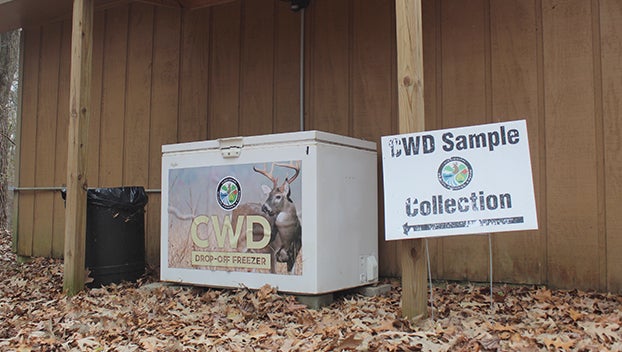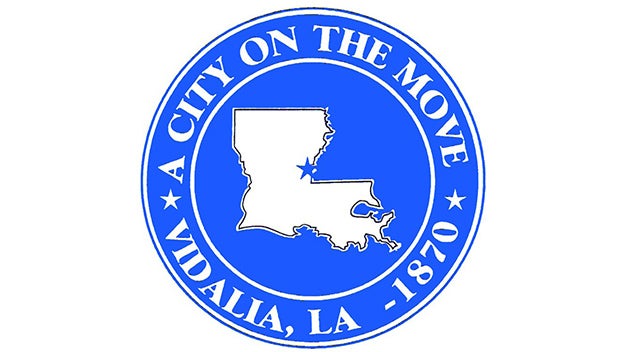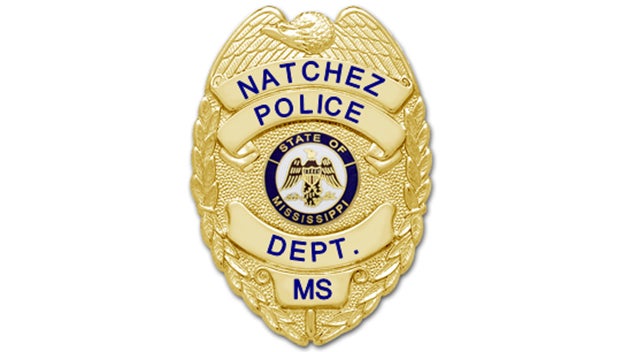Four women, all kidney donors, promote the gift of life on Natchez Trace bike ride
Published 10:13 pm Saturday, September 28, 2024
|
Getting your Trinity Audio player ready...
|
NATCHEZ — Friday evening, four women who did not know each other prior to Tuesday completed a four-day, 444-mile bicycle ride on the Natchez Trace from its start in Nashville to its end in Natchez.
These women, who live in different areas of the country and lead very different lives, have one thing in common: They have donated a kidney.
Their effort stemmed from a passion for educating others about kidney donations, which save lives, and the continued health of those who donate a kidney.
4Women 4Kidneys 444Miles 4Days
Anna Cannington, 56, of Vancleave, was 51 when she donated a kidney to a complete stranger. A strength trainer, Cannington read about a man in her strength training group, StrongFirst, who needed a kidney. She donated in 2019 in Oklahoma City, where her kidney recipient lives.
Diane Mills, who lives in Meridian, Mississippi, donated a kidney to a friend in 2010. Almost 14 years after the donation, she has been a living donor longer than the three other riders, showing that the donation hasn’t negatively impacted her health in that time.
Becky Bussey of Morrison, Colorado, was a non-directed kidney donor in 2020, meaning she did not donate to a specific recipient. She didn’t know anyone needing a kidney and allowed her transplant center to find whoever could benefit and was a match. After listening to a podcast about living organ donation, Bussey was inspired to donate her “spare” kidney.
Rebekah Thomas of Burlington, Vermont, was also a non-directed kidney and liver donor. She is a teacher who was inspired to donate after witnessing a student receive life-altering liver and kidney transplants. She donated her kidney and a lobe of her liver at the same time in the same hospital where her student had her transplants.
Raising awareness
Cannington heard about living donations through her brother, a nephrologist in Boston.
“I knew it was a possibility and that your kidneys have a lot of extra capacity,” she said. “I knew if a family member needed a kidney, I would consider donating, but I had never thought about it.”
That is until she read about a man in her strength training online group who had end-stage kidney disease.
“I kind of participated in support efforts toward that, but it didn’t occur to me that I could be a donor,” Cannington said.
Then, she watched a television report from WLOX station in Biloxi about a grocery store cashier on the Mississippi Gulf Coast who donated a kidney to the wife of one of her customers.
“Her customer told her his wife was on dialysis and needed a kidney,” Cannington said. “The cashier said, ‘I will give her one of mine,’ and did. I thought, ‘That’s so cool,’ but I don’t even know someone who needs a kidney, then I realized, I did.
In January 2019, she contacted the support page of the man, Dustin Rippetoe of Edmond, Oklahoma, who needed a kidney.
“There are lots of hoops you have to jump through. He had just had a donor that was denied,” she said. “We did the initial screening.”
That screening includes answering many basic questions, like do you have high blood pressure? I had routine medical screenings done. Then, they took a blood sample from me, which they mixed with his blood to see if our blood was compatible. It was.
Then, a tissue type showed Cannington was a good match for Rippetoe.
“I was never really scared. I had my brother to answer all of my questions.”
In April 2019, she met her kidney recipient for the first time and went through additional intense screenings.
“You talk to a psychologist, a surgeon, the nephrologist, and have a renal flow test,” she said.
In May 2019, Cannington was officially approved, and she flew to Oklahoma City for the surgery in June 2019. She was in the hospital for two days and stayed in Oklahoma City for two weeks just to make sure no complications arose.”
She said every transplant team has several people whose roles are to support the donor.
“There is a nurse coordinator, a donor support person, and an independent donor advocate whose job is just looking out for the donor’s best interest. The advocate ensured I was being treated well and my interests were being considered. Donors can step out of the transplant at any time.
“We had no complications. Everything went well. The kidney started working right away,” Cannington said.
The recipient’s kidneys are left in place, and the new kidney is installed in the front of the recipient’s body in the pelvis area. While typically, the left kidney is the one taken for donation because it is easier for surgeons to get to, Cannington donated her right kidney.
“They leave the donor with their “best” kidney. My right kidney was larger and more productive,” she said.
Her kidney recipient, Rippetoe, is doing well.
“He’s doing great. He’s healthy and working out all the time. He was on dialysis for a full year before the surgery. His prognosis is good,” she said.
Donations of living kidneys last twice as long as those taken from deceased people. However, donors may need another kidney after a period of time.
Kidney donor athletes
Each of the four women considers themselves athletes to varying degrees. Each had participated in cycling events before this week’s drive began.
Cannington is a serious strength trainer. She went back to work three weeks after the surgery.
“I went back to the gym after three weeks but didn’t lift. I had to build my strength back up. I went back to barbell strength training and was able to deadlift 300 pounds in four months.”
She also biked a 62-mile trek after three months.
Cannington is a former member of the U.S. Air Force and the Air National Guard. She is a contractor for the U.S. Department of Defense in information technology.
“I worked at Keesler Air Force Base until COVID but have worked from home since then,” she said.
It wasn’t until age 45 that she began strength training.
“As active duty in the Air Force, then the Air National Guard, I had to maintain decent physical condition, but I wasn’t what I would consider an athlete. I enjoyed kayaking and cycling and strength training.”
Now, she is a certified personal trainer. After her surgery, she took up Olympic-style weightlifting, known as “snatch and clean and jerk.” It’s a specific type of competitive lifting.
She and her husband, Dale Cannington, have three grown children.
The four women met on the Kidney Donor Athletes Facebook group, started in 2018 by a woman who donated.
“She was an ultra marathon runner, and she found that she didn’t have support or other athletes who had donated a kidney to ask questions of, so she started the group,” Cannington said. “We are here to support each other. Anyone who considers themselves an athlete can join this group. That’s how we all met. Diane first had the idea three years ago.”
Natchez Trace: A great place to ride
The four met up Monday in Nashville and began their ride on Tuesday morning.
“The only complication was the first day it was raining,” Cannington said.
The group rode 106 miles on the first day, 120 on Wednesday, 122 on Thursday, and 103 on Friday.
“We stayed at bed and breakfasts on the Trace that cater to people who are biking. We stayed at the Farmhouse Sanctuary in Alabama the first night and another B&B in Houston on the second night,” she said.
Explore Ridgeland put the four women up on Thursday night at the AC Marriott.
“Explore Ridgeland is the group that promotes tourism. They were so supportive. They met us at the reservoir and brought us to the tourism office, where we had media,” she said.
The end of the trip and their fourth night was spent at The Natchez Grand.
“We got her in time to see the gorgeous sunset over the river Friday night,” Cannington said.
“The Natchez Trace Parkway is beautiful. It is such a great place to ride — 444 miles on a road with good conditions. The only busy places were Tupelo and Jackson. The rest of it is so really nice. No signs. No trash. I highly recommend it for cyclists.
“Our goal was to raise awareness about kidney donations. Lots of people are capable of donating a kidney and would consider it if they knew more about it,” she said.










